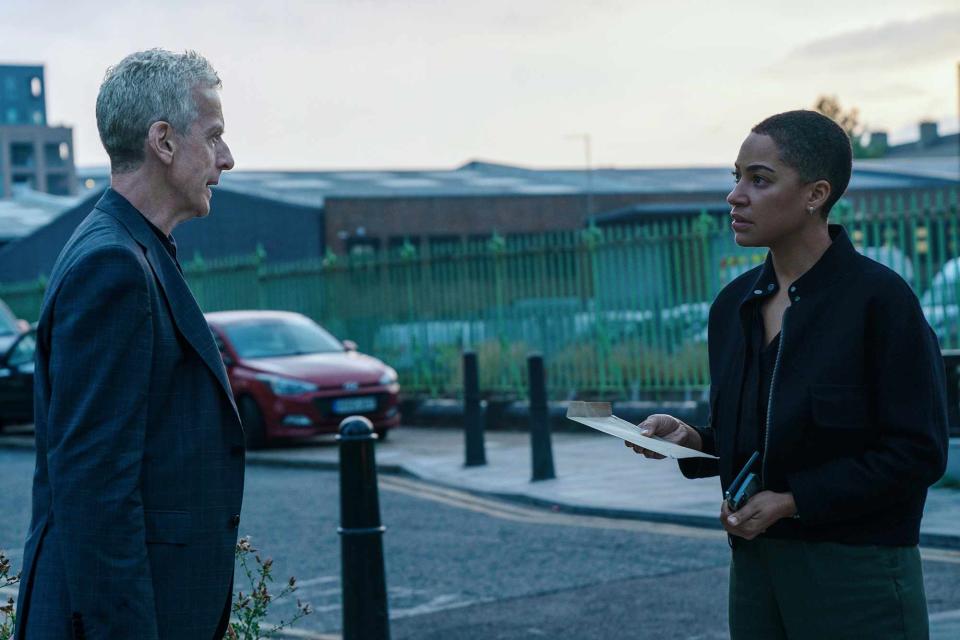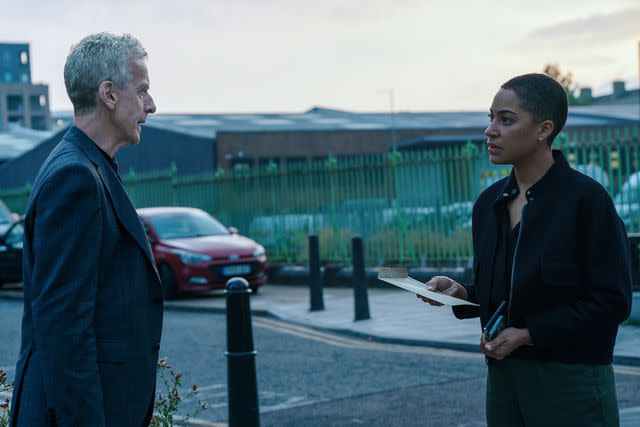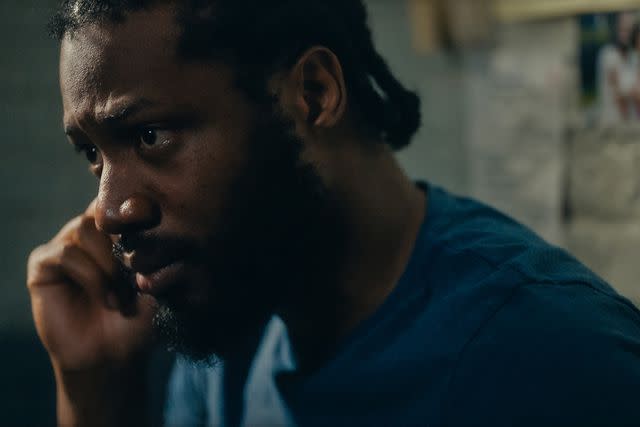“Criminal Record” review: Peter Capaldi and Cush Jumbo clash in this can't-miss drama
- Oops!Something went wrong.Please try again later.
- Oops!Something went wrong.Please try again later.
The Apple TV+ thriller weaves slippery social issues into a suspenseful tale of murder and injustice.

Apple TV+
Peter Capaldi and Cush Jumbo in 'Criminal Record'It’s likely that True Detective — the celebrated HBO noir which returns on Sunday after a four-year absence — will suck up most of the crime-drama oxygen this week. So, let’s take a few minutes to talk about Criminal Record, the new and refreshingly unfussy mystery-thriller starring Peter Capaldi and Cush Jumbo. Premiering Wednesday on Apple TV+, the eight-episode series from creator Paul Rutman (Indian Summers) weaves slippery social issues into its suspenseful tale of a decade old murder, institutional power dynamics, and good old-fashioned shoe-leather police work.
When Detective Sergeant June Lenker (Jumbo) is assigned to investigate an anonymous domestic violence call, it leads her down a rabbit hole involving the 2012 murder of Adelaide Burrowes. As June begins having doubts about the conviction of Errol Mathis (Tom Moutchi), Adelaide’s boyfriend, she brings her concerns to Detective Chief Inspector Daniel Hegarty (Capaldi), the well respected and connected veteran cop who put Mathis away all those years ago. The meeting does not go well; June is appalled when Hegarty refers to Errol as a “poor man’s O.J.,” and Hegarty isn’t about to let a relatively inexperienced female detective threaten his legacy with the specter of a wrongful conviction. Sensing a cover-up, June keeps digging — even as Hegarty and the department’s white-male wall of silence threatens to bury her.

Apple TV+
Peter Capaldi and Cush Jumbo in 'Criminal Record'Though it adds race and gender dynamics to the rookie-vs.-veteran crime-show trope, Criminal Record avoids moralizing and instead depicts the microaggressions June faces daily with matter-of-fact clarity. Her boss, DCI Roy Chambers (Ian Bonar), initially assigns her the domestic violence call because it needs, in his words, “a woman’s touch.” And DS Kim Cardwell (Shaun Dooley), Hegarty’s colleague on the Mathis case, makes a joke of confusing June for her Black colleague Chloe (Dionne Brown). June’s psychiatrist husband, Leo (Stephen Campbell Moore), is supportive of her career, but he’s also a white guy who sometimes bristles at June’s reports of day-to-day racism. “Isn’t the world f---ed up enough as it is?” he asks, after she vents to him about Hegarty’s O.J. comment. “You don’t always have to look for it.”
The question of who killed Adelaide Burrowes is at the heart of Criminal Record, but for June, the case comes wrapped in an even knottier mystery: If Hegarty and his partners made mistakes, were those mistakes driven by racism (systemic or personal), or just the inevitable vicissitudes of police work? While his peers Kim and DS Tony Gilfoyle (Charlie Creed-Miles) gripe about changing social mores and a “world gone mad,” Hegarty — propelled by pure survival instinct — has learned how to adapt, and he employs the modern language of inclusion to his own advantage. When June presses to interview a white man (Andrew Brooke) recently arrested for murder about the Adelaide Burrowes case, Hegarty proceeds to lecture her about the concept of “unconscious bias” — in front of her boss, no less. “Sometimes, you see, an officer can bring to a case a certain distorted view, due to their own, dare I say it, pre-existing prejudice,” he explains, barely bothering to veil his condescension. It’s manipulation at its most masterful.

Apple TV+
Tom Moutchi in 'Criminal Record'As infuriating as Hegarty can be, he remains more an enigma than a villain throughout most of the season. Criminal Record doesn’t traffic in binary characterizations; neither June nor her nemesis are as good or as bad as they seem. Both make assumptions about the other and regularly circumvent the rules to further their agenda, and I toggled at least four times between believing one’s version of events over the other’s. The uncertainty adds a tantalizing layer of tension to June and Hegarty’s many clashes, as does the thrill of watching Jumbo and Capaldi face off. Wielding his Glasgow glower and brusque baritone like a truncheon, Capaldi reveals Hegarty to be both a fearsome force of intimidation and a heart-shattered man with little to live for but his troubled daughter (Maisie Ayres). And it’s a treat to see Jumbo — always so good as the focused and unflappable Lucca Quinn on The Good Wife/Fight — as the fierce and impulsive June, a woman who’s not afraid to brawl with a perp in an elevator or shed tears of frustration in the office bathroom.
The questions surrounding the Adelaide Burrowes case do all get answered in the end. If the shock reveal in the final minutes of the finale feels uncharacteristically facile, it’s only because Criminal Record is otherwise so adept at avoiding binary conclusions. Still, the resolution doesn’t preclude another season with London’s least-compatible crime fighters, and I hope they are forced to meet again. Grade: A-
Criminal Record premieres Wednesday, Jan. 10, on Apple TV+.
Sign up for Entertainment Weekly's free daily newsletter to get breaking TV news, exclusive first looks, recaps, reviews, interviews with your favorite stars, and more.
Related content:
Read the original article on Entertainment Weekly.

